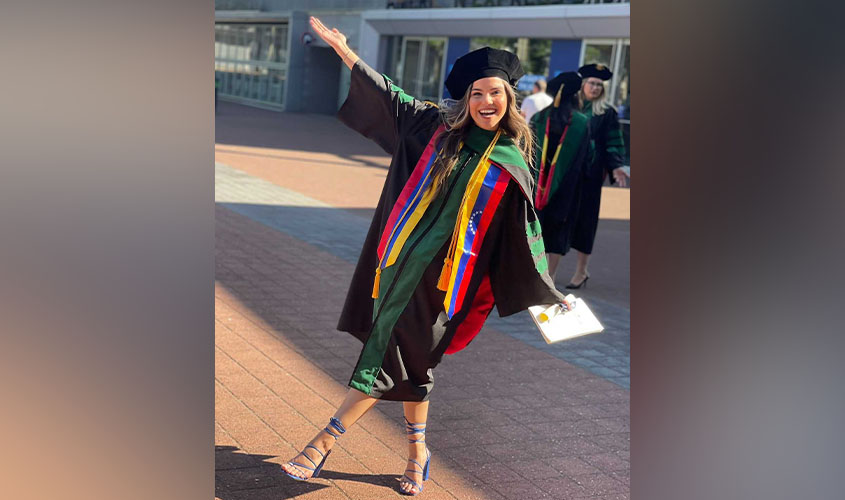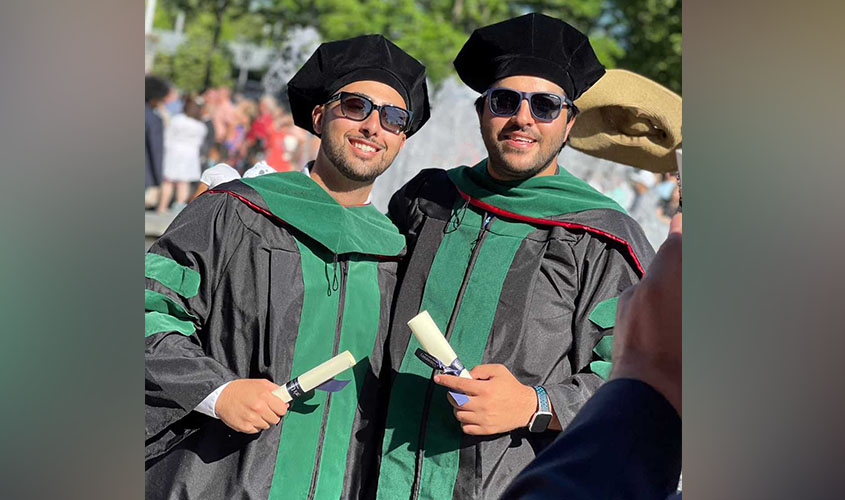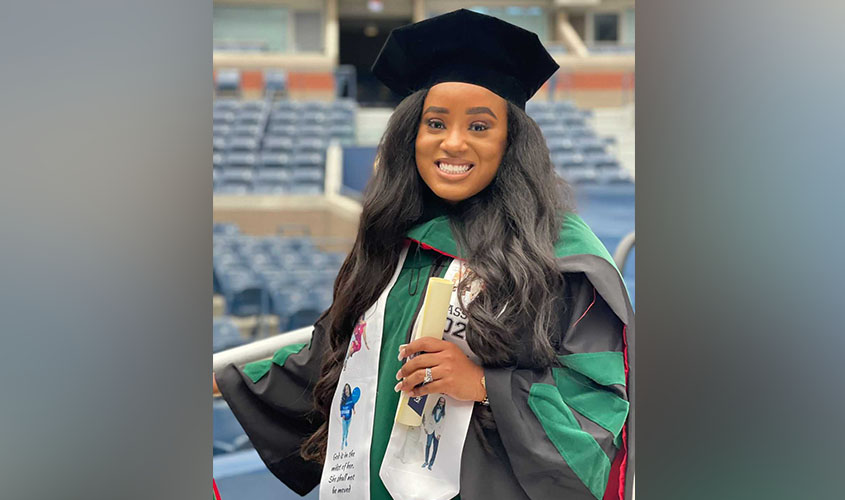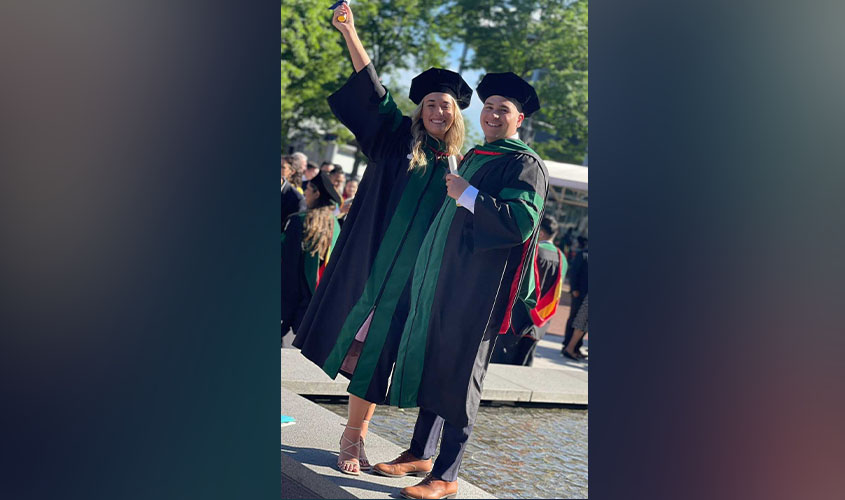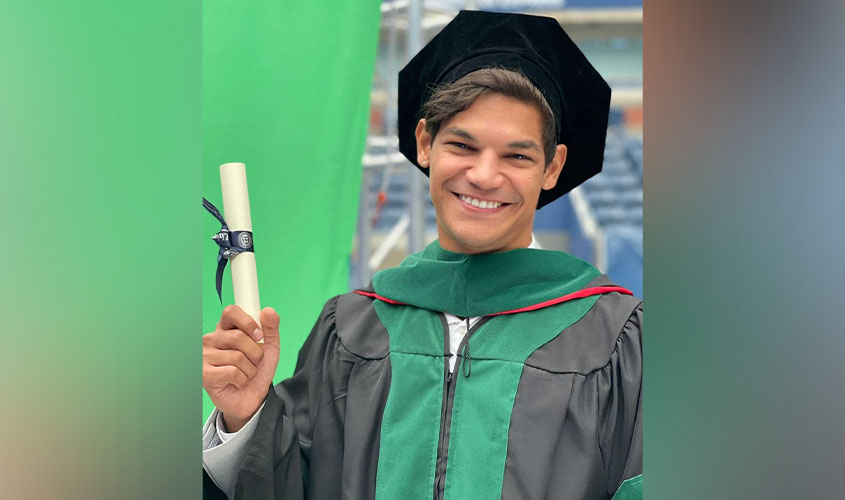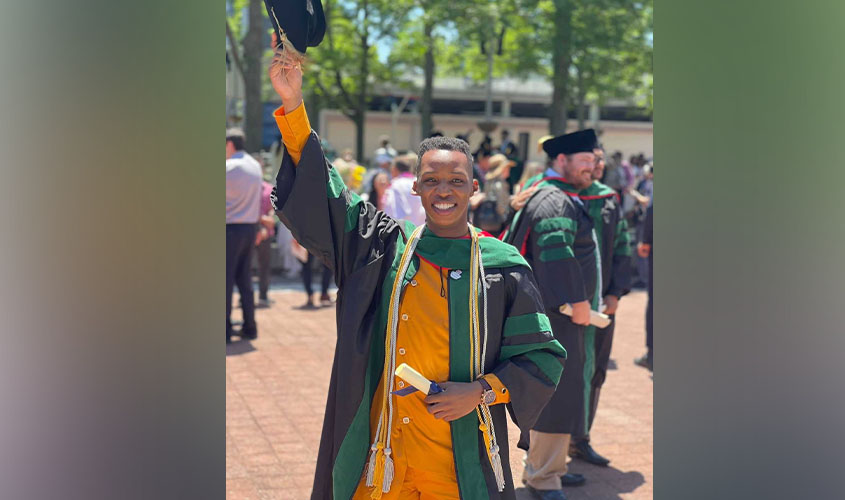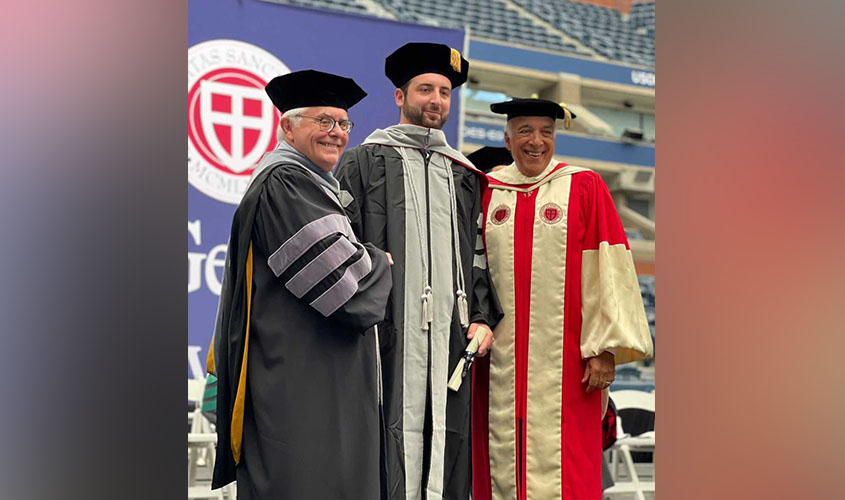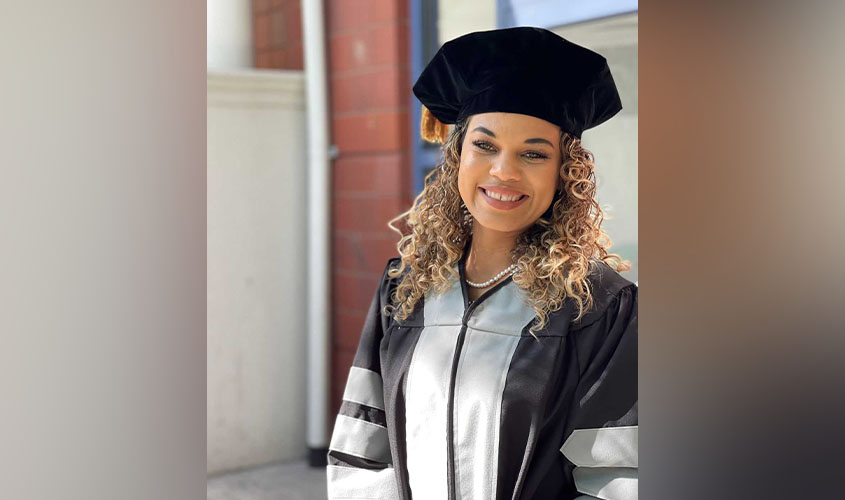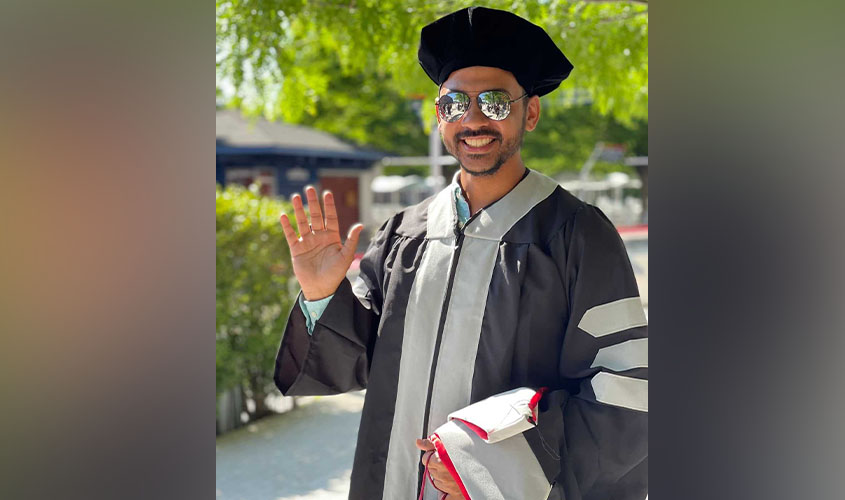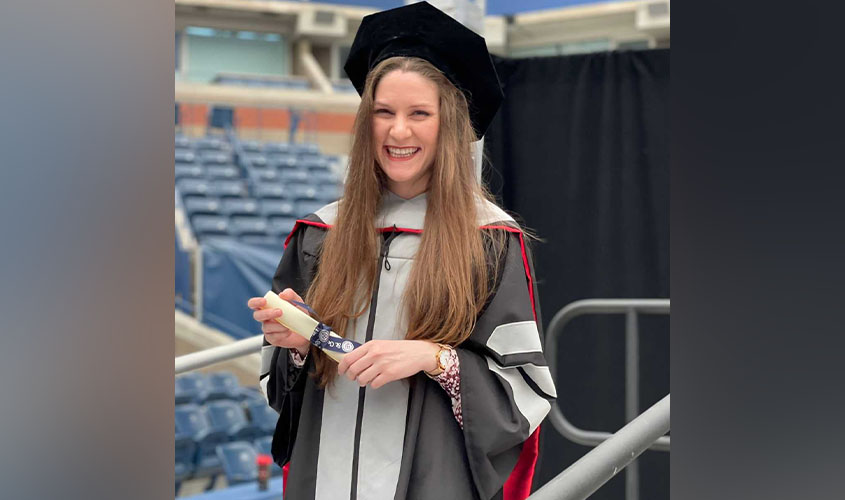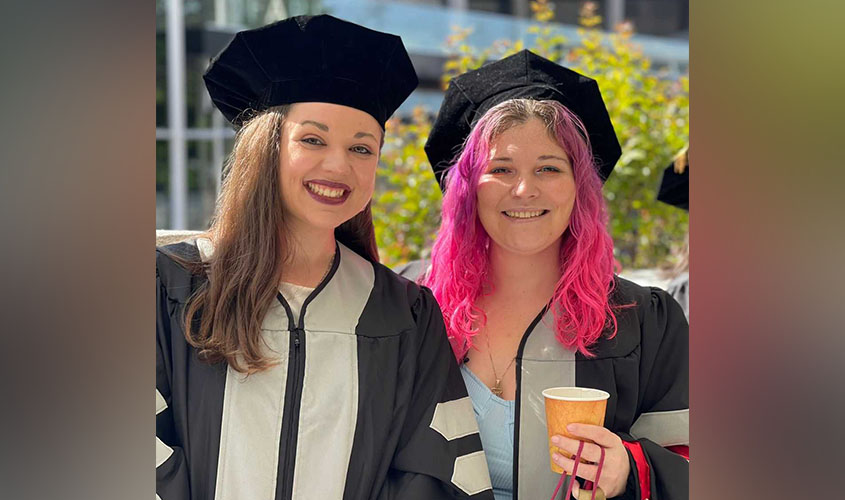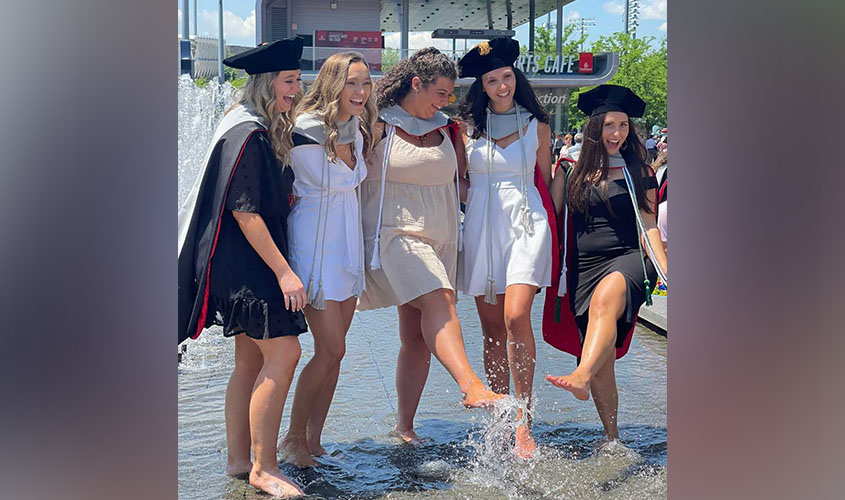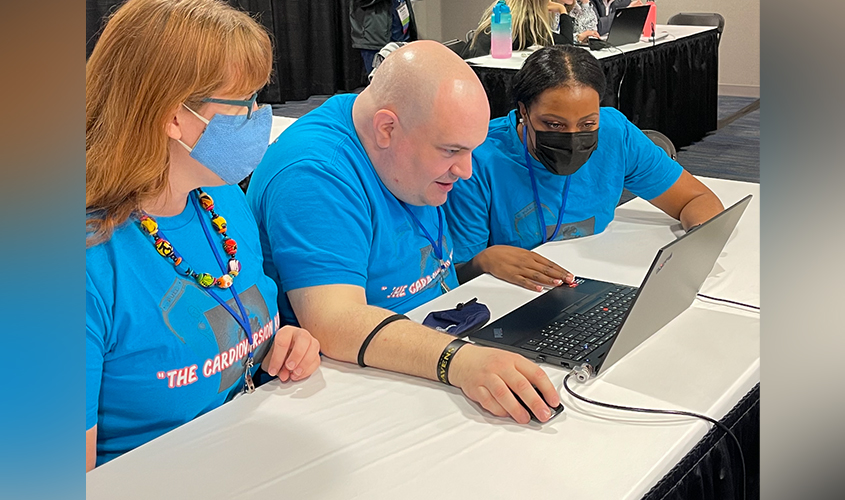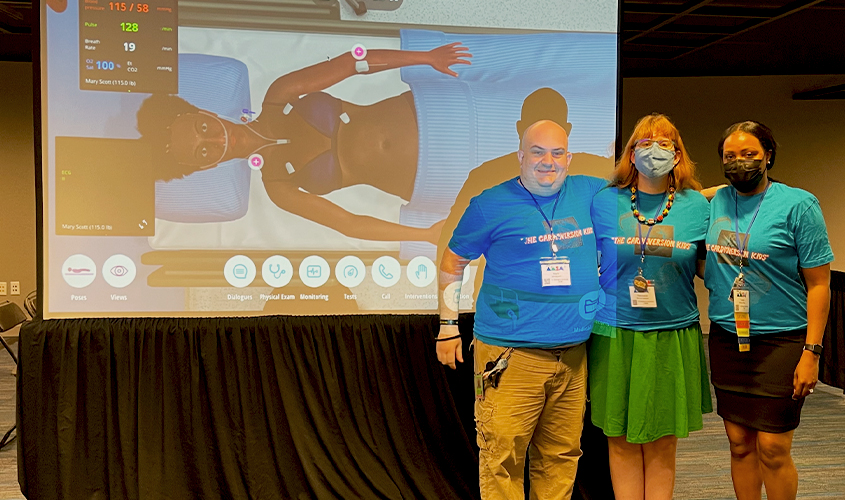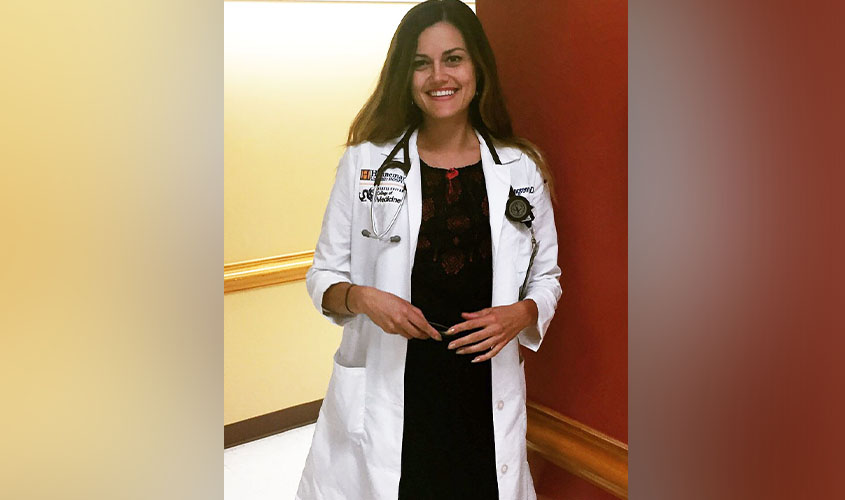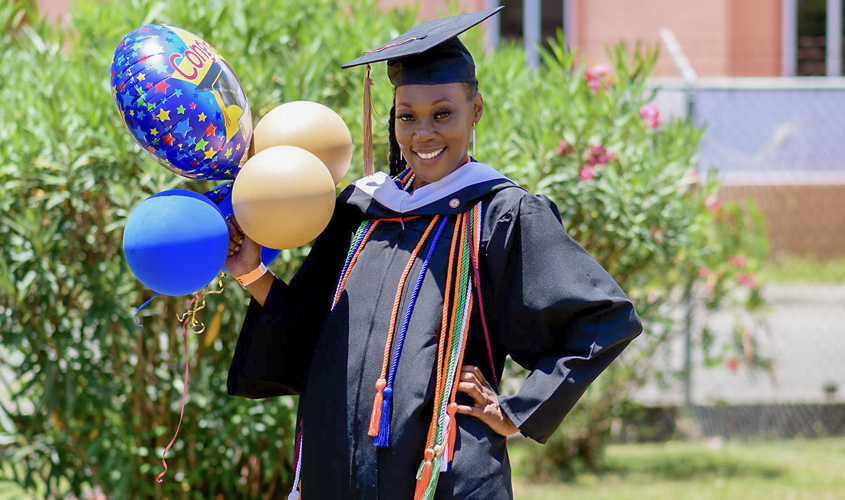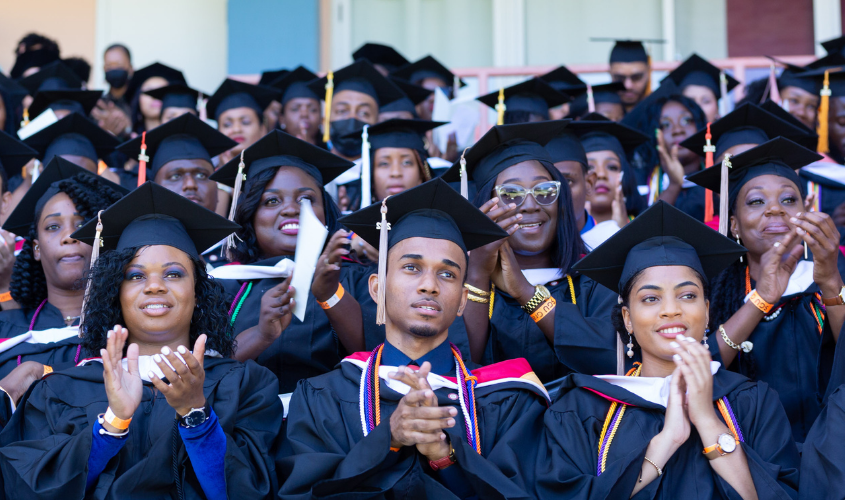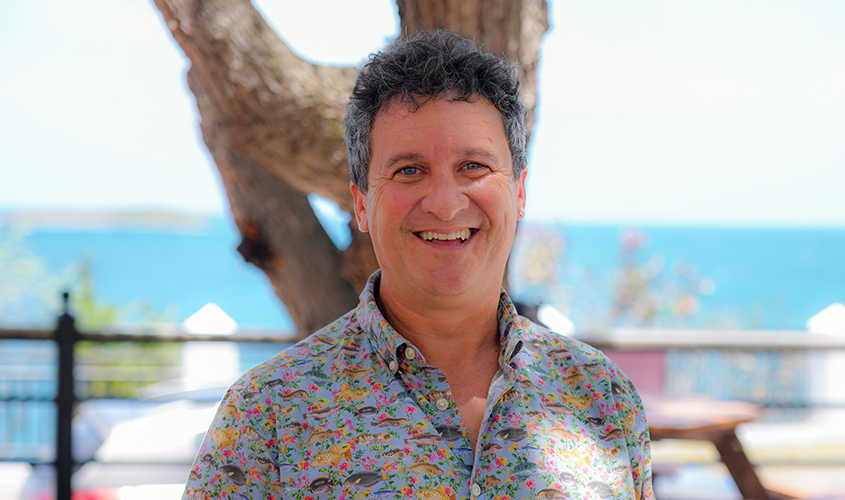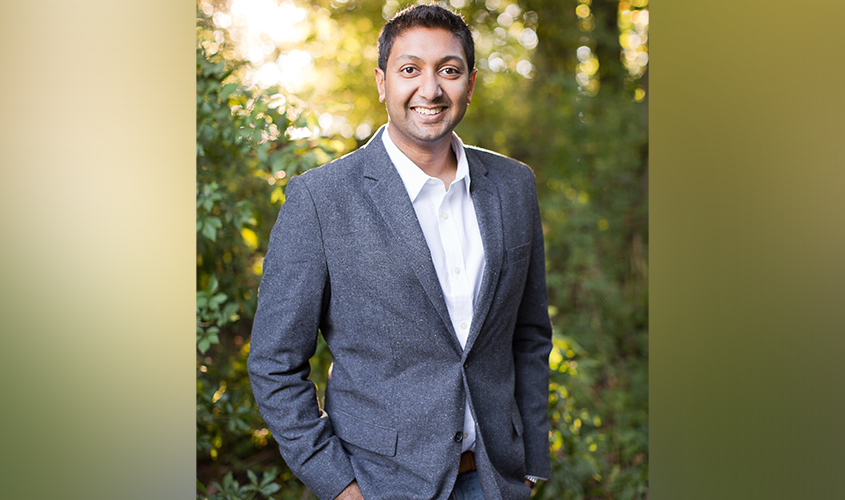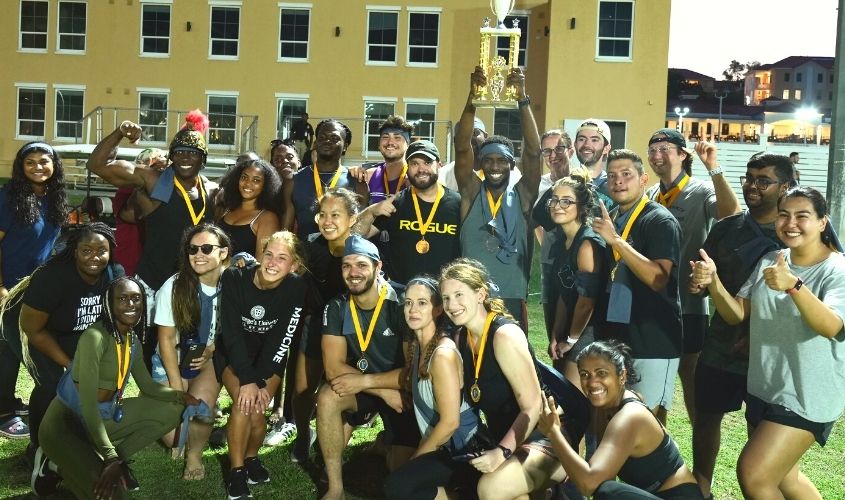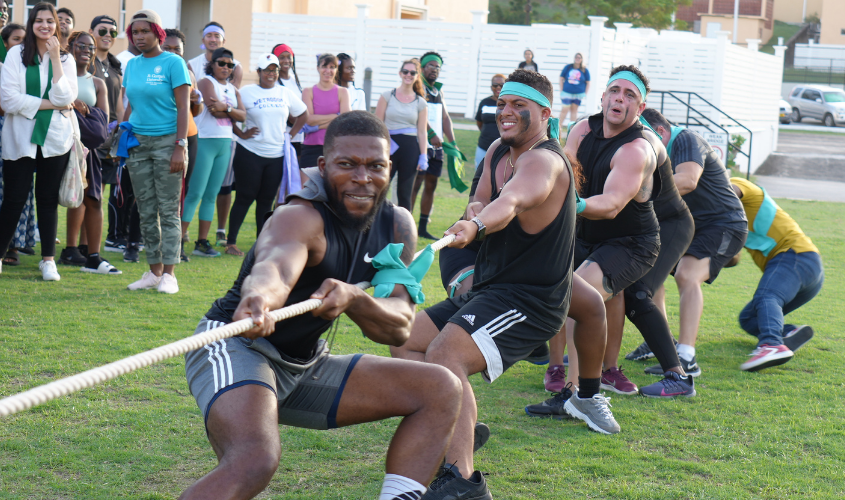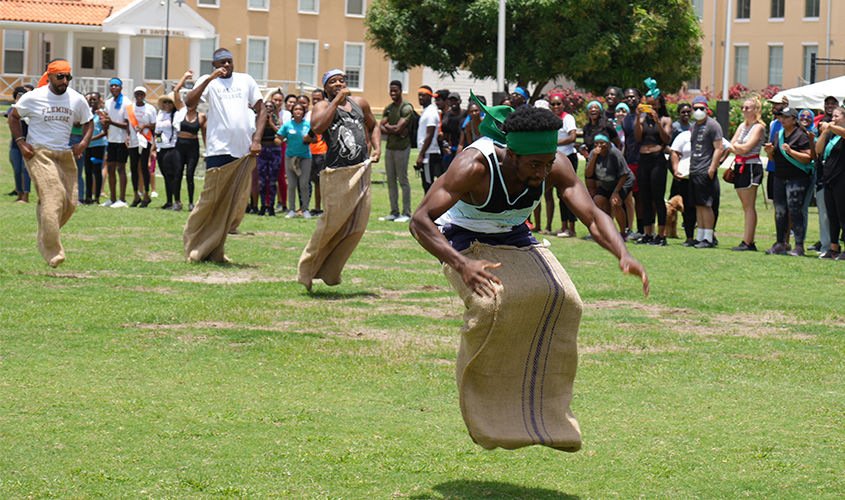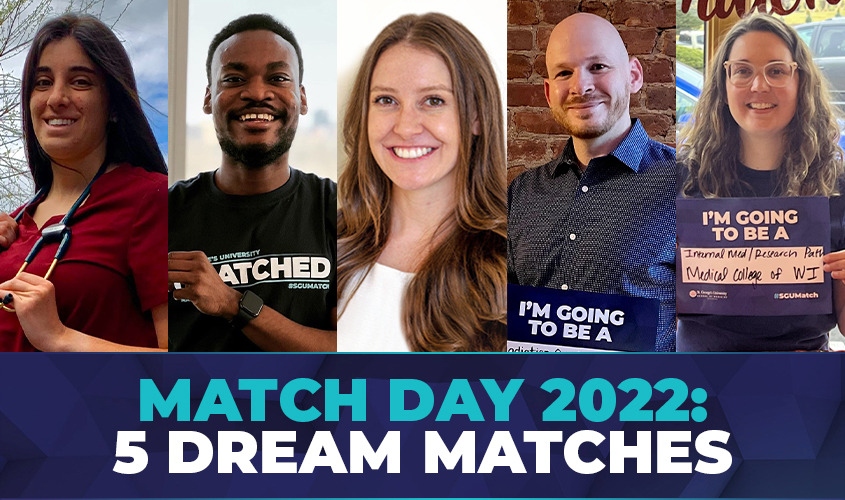
What’s it like to match in a competitive specialty for residency?
This summer, hundreds of St. George’s University students will begin the next phase of their medical careers—by making the transition from student to resident. SGU students matched into first-year residency positions across a variety of specialties and throughout the US, including highly-competitive fields like orthopedic surgery, neurology, and anesthesiology, to name a few.
SGU News asked several students who matched into hard-to-get residency positions why their chosen field appealed to them, and the advice they have for the next group of students on how to secure the residency of their dreams.
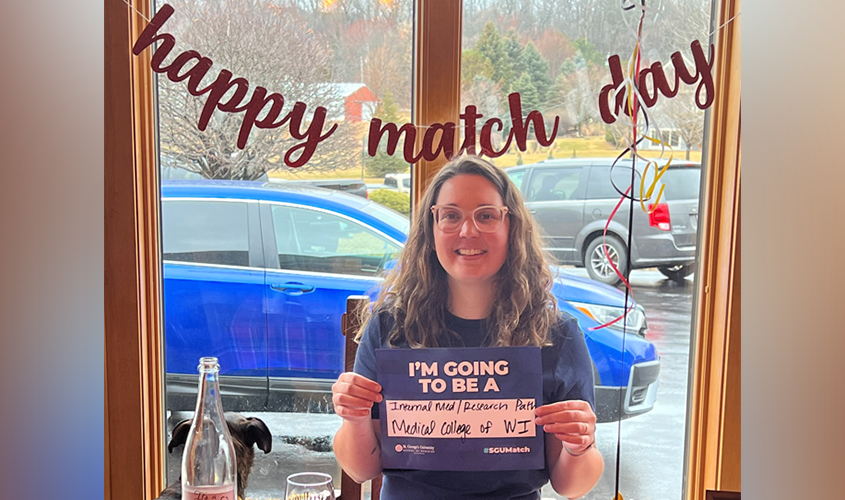
Julie Hansen
Internal Medicine, Physician Scientist track
Medical College of Wisconsin
Hometown: Menomonee Falls, WI
SGU: How did you become interested in the specialty you selected?
Ms. Hansen: I have always wanted to become a physician, but during college I fell in love with research. Before applying to medical school, I worked as a biopharmaceutical scientist for two years and as a nutraceutical R&D scientist for two years. These experiences further drove my passion for research and showed me the potential for bridging the gap between medicine and translational research.
When I started at SGU, I didn’t know anything about physician-scientist positions for residency. It wasn’t until I was midway through my internal medicine rotation when I started exploring physicians who have careers in medicine and research, and I stumbled upon physician-scientists. I knew it was a perfect match for me. I spent time researching exactly what I would need to be considered for a physician scientist position and I put the work in because I knew I could achieve it, even as an international medical graduate. As an IMG we do get counted out at times, but when someone counts me out, I ask them to count again!
SGU: In what ways did your medical education prepare you to enter this specialty?
Ms. Hansen: SGU was my ticket to everything! SGU gave me the foundation and tools necessary to achieve my goals. Aside from academics, I learned that SGU offers research opportunities to students starting in Term 2. This allowed me to work with Dr. Paul Fields in the Office of Research for a year and a half on initiating and gaining approval for three clinical trials.
SGU: What did it feel like when you matched?
Ms. Hansen: It was the happiest day of my life.
SGU: What are you most looking forward to in your residency?
Ms. Hansen: I am looking forward to working hard, gaining knowledge, and growing my skills to best service my community. I look forward to performing extensive research during my three research years in residency/fellowship.
SGU: What’s the most important lesson you learned at SGU that you will take with you in residency?
Ms. Hansen: Just because you’re an “underdog” doesn’t mean you aren’t capable of amazing things. If you put yourself in the right position for success and strive every day to be who you want to be, your dreams will come true.
“You have so much more potential than you can imagine. Believing in yourself is the first step to becoming successful.”
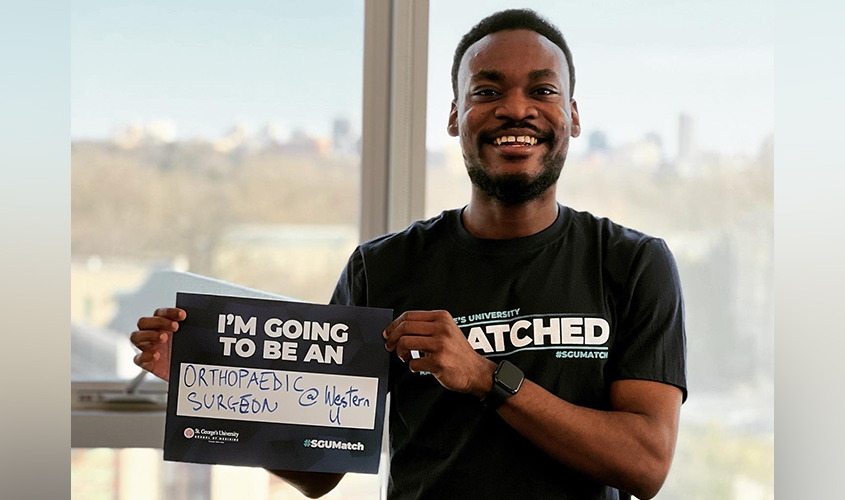
Olumide Olotu
Orthopedic Surgery
Western University Hospital
Hometown/Country: Nigeria
SGU: How did you become interested in the specialty you selected?
Mr. Olotu: I completed my undergraduate degree in kinesiology. I also worked at physiotherapy clinic before going to medical school. So, entering medical school, I was sort of biased towards the musculoskeletal system and had an interest in orthopedic surgery.
SGU: In what ways did SGU prepare you to enter this specialty?
Mr. Olotu: My third-year experience at Ascension St. John Hospital in Detroit was amazing. I received well-rounded exposure to a wide variety of specialties including orthopedic surgery. This experience was crucial to my pursuit of orthopedics as a career.
Also, in my fourth year, all Canadian visiting electives were closed due to COVID-19. But through SGU, I was able to secure an elective at Pembroke Regional Hospital, a community hospital just outside Ottawa. Spending four weeks there, I worked closely with three orthopedic surgeons where I got a lot of hands-on experience. I was always the first assist in the OR and was actively involved in fracture clinic. To top it off, I was able to obtain multiple Canadian letters of recommendation from that rotation which helped my Canadian residency application.
SGU: What did it feel like when you matched?
Mr. Olotu: It was exhilarating. I wish I could capture that feeling and put it in a bottle. For a long time, it almost didn’t feel real. I couldn’t believe I finally achieved my goal I set at the beginning of medical school. I was on FaceTime with my sister when I checked my result, and she secretly recorded my reaction. Watching it brings back all the memories.
SGU: What are you most looking forward to in your residency?
Mr. Olotu: I look forward to being back in the hospital environment and spending more time in the OR.
SGU: What’s the most important lesson you learned at SGU that you will take with you in residency?
Mr. Olotu: Never give up on your dreams and goals, no matter how audacious they may seem. All it takes is one opportunity to show your worth.
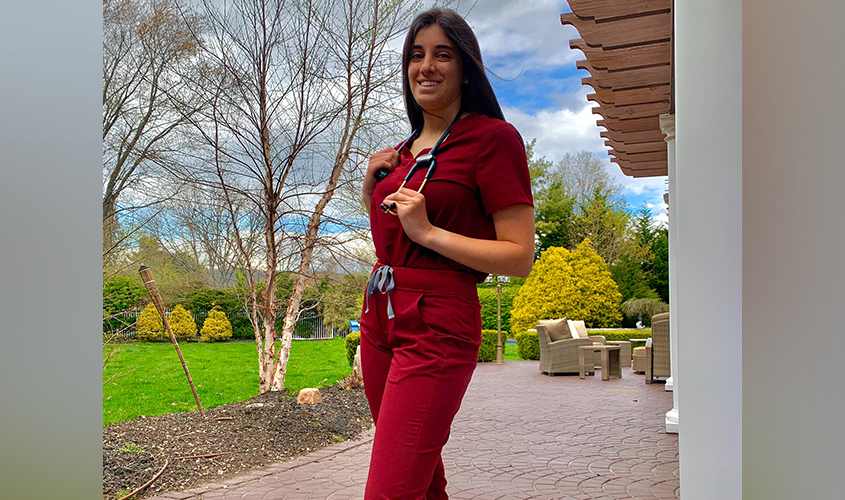
Giavanna Verdi
Pediatrics/Medical Genetics and Genomics
University of Alabama Medical Center
Hometown: Wading River, NY
SGU: How did you become interested in the specialty you selected?
Ms. Verdi: Pediatric/Medical Genetics grabbed my attention simply because it combines two of my favorite specialties!
Through many shared smiles and achievements in both recreational and educational settings with kids of all ages, I have found alacrity in becoming a clinician who promotes children’s health and understanding of their diagnosed disease. I am drawn to pediatrics for the never-ending questions to be answered and disease processes to be discovered.
As for my interest in medical genetics, this field allows me to further my passion for advancing the field through research involvement. While partaking in the detective work in medicine, there will be satisfaction in learning new disorders daily and in providing resources to patients and their families for overcoming the challenges with a rare diagnosis. With my experiences studying and training in medicine abroad, I aspire to open a clinic in an underserved area and patron outreach medicine—and hopefully helping to reverse the lack of diversity in examples of several genetic disorders.
SGU: In what ways did your medical education prepare you to enter this specialty?
Ms. Verdi: My most memorable experience in Grenada was when I visited the Grenada General Hospital with a former SGU professor. We arrived at the maternal unit and found a young mother with her week-old baby boy lying in bed. I sat beside her, and she confided in me about how her son looked different than other children, with low-set ears, widespread eyes, and lip dysmorphia. I felt how much she appreciated the ability to share her fears and concerns with me. A blood sample was collected to determine not only a diagnosis but to provide insight and understanding of the baby’s disorder.
Delicately navigating complex social situations and family dynamics, along with compassion for both mother and baby, are crucial for becoming a successful pediatrician.
SGU: What did it feel like when you matched?
Ms. Verdi: When I found out I matched into my top choice, my heart immediately dropped. I could not believe I fulfilled a lifelong dream of mine.
SGU: What are you most looking forward to in your residency?
Ms. Verdi: The interactions I will have with my future patients and their families. Hearing their stories, including where they are from, their family traditions, their previous and upcoming vacations and holiday celebrations, and so much more!
SGU: What’s the most important lesson you learned at SGU that you will take with you on this next step of your professional journey?
Ms. Verdi: It took me a long time to realize this—you are greater than you think you are. You have so much more potential than you can imagine. Believing in yourself is the first step to becoming successful.
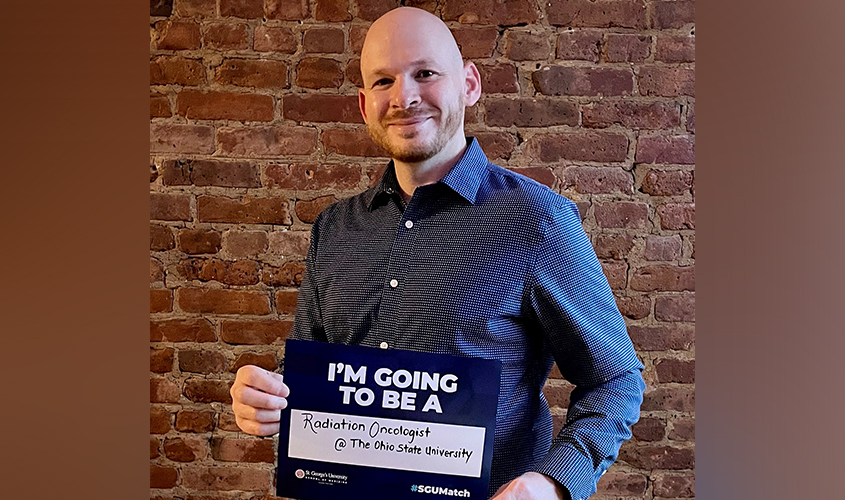
Marshall Harrell
Radiation Oncology
The Ohio State University Hospital
Preliminary year: Internal Medicine at Florida State University
Hometown: Tallahassee, FL
SGU: How did you become interested in the specialty you selected?
Mr. Harrell: Radiation oncology is often referred to as the “best kept secret in medicine.” This rings true because it is a wonderful specialty but most medical students, whether US or IMG, do not get much exposure to it during their medical school career unless they take it as a fourth-year elective.
I was very lucky to have the opportunity to shadow one of my professors who was a radiation oncologist while completing my undergraduate degree in nutrition science at UC Davis. He became my mentor and helped guide me in my path to medical school.
SGU: In what ways did SGU prepare you to enter this specialty?
Mr. Harrell: SGU provided me with a strong education in the genetic and cellular mechanisms of cancer biology, as well as an intensive cancer pharmacology curriculum. Radiation oncology is very anatomy-oriented, so the anatomy and radiology training I received is also of great benefit. The most pivotal training I received, however, was during my radiation oncology elective rotation at The Brooklyn Hospital Center.
SGU: What did it feel like when you matched?
Mr. Harrell: I would have to say “ecstatic” is a pretty accurate description.
SGU: What are you most looking forward to in your residency?
Mr. Harrell: Radiation oncology is an incredibly exciting field right now. There are many new technological advancements and innovations in how treatments are planned and delivered. For example, the hospital where I matched has a new state-of-the-art proton center, which will provide me with excellent opportunities in training and research.
Most of all, however, I am looking forward to working with patients, building relationships, and reaching the point in my own development where I am confident and knowledgeable enough to provide excellent care and help improve the lives of my patients.
SGU: What’s the most important lesson you learned at SGU that you will take with you on this next step of your professional journey?
Mr. Harrell: Focus on thoroughly understanding the fundamentals. If you work on understanding concepts and underlying mechanisms, and how to apply that reasoning during your clinical encounters, you will be more likely to find the correct diagnoses and implement the appropriate treatment options.
“I couldn’t believe I finally achieved my goal I set at the beginning of medical school. I was on FaceTime with my sister when I checked my result, and she secretly recorded my reaction.”
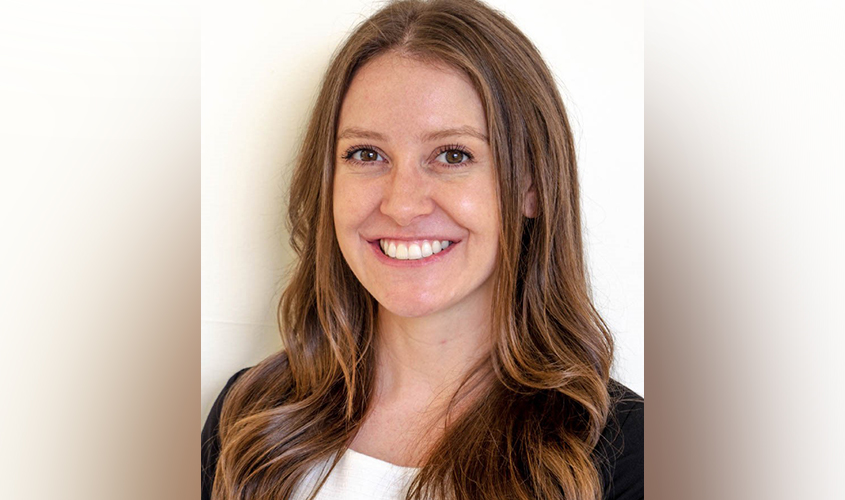
Hailey Carruthers
Diagnostic Radiology
St. Joseph Mercy-Oakland Program
Hometown: Ontario, Canada
SGU: How did you become interested in the specialty you selected?
Ms. Carruthers: During my third-year clinical rotations, I found myself captivated by examining imaging for my patients. I appreciated the multi-faceted nature of radiology, working across different organ systems and the many specialties. I quickly realized just how many patients that radiologists help in a single day. I was then lucky enough to have the chance to follow a patient to interventional radiology. I loved the creative and collaborative atmosphere in the IR suite, with myself as a medical student, residents, technicians, and attendings all working together and discussing the case. I was hooked.
SGU: In what ways did SGU prepare you to enter this specialty?
Ms. Carruthers: SGU provided me with the all the foundational knowledge I need moving forward and set up clinical rotations where I felt comfortable to ask questions and learn from attendings who built up my confidence.
SGU: What did it feel like when you matched?
Ms. Carruthers: Overwhelming. Being both an international medical graduate and a non-US citizen I knew it would be an uphill battle. Many IMGs feel like the more competitive specialties are off the table from the get-go, but I whole-heartedly believe that any obstacles can be overcome with the right mindset and dedication. My first words were “I did it.”
SGU: What are you most looking forward to in your residency?
Ms. Carruthers: The next step and continuing to grow as a young physician. I am looking forward to learning from the amazing faculty at the program who gave me a shot, and I hope to encourage more women looking to enter the more male dominated and competitive fields.
SGU: What’s the most important lesson you learned at SGU that you will take with you into residency?
Ms. Carruthers: Through SGU, I found some incredible mentors who were invested in me and supported me through the ups and downs of applications. They created a shared experience and a sense of community where alumni and trainees look after one another. I hope that by sharing my story and experiences it will inspire those who think it’s not possible, the way my mentors inspired me. Never be deterred from your passion.
—Sarah Stoss
Related Reading
